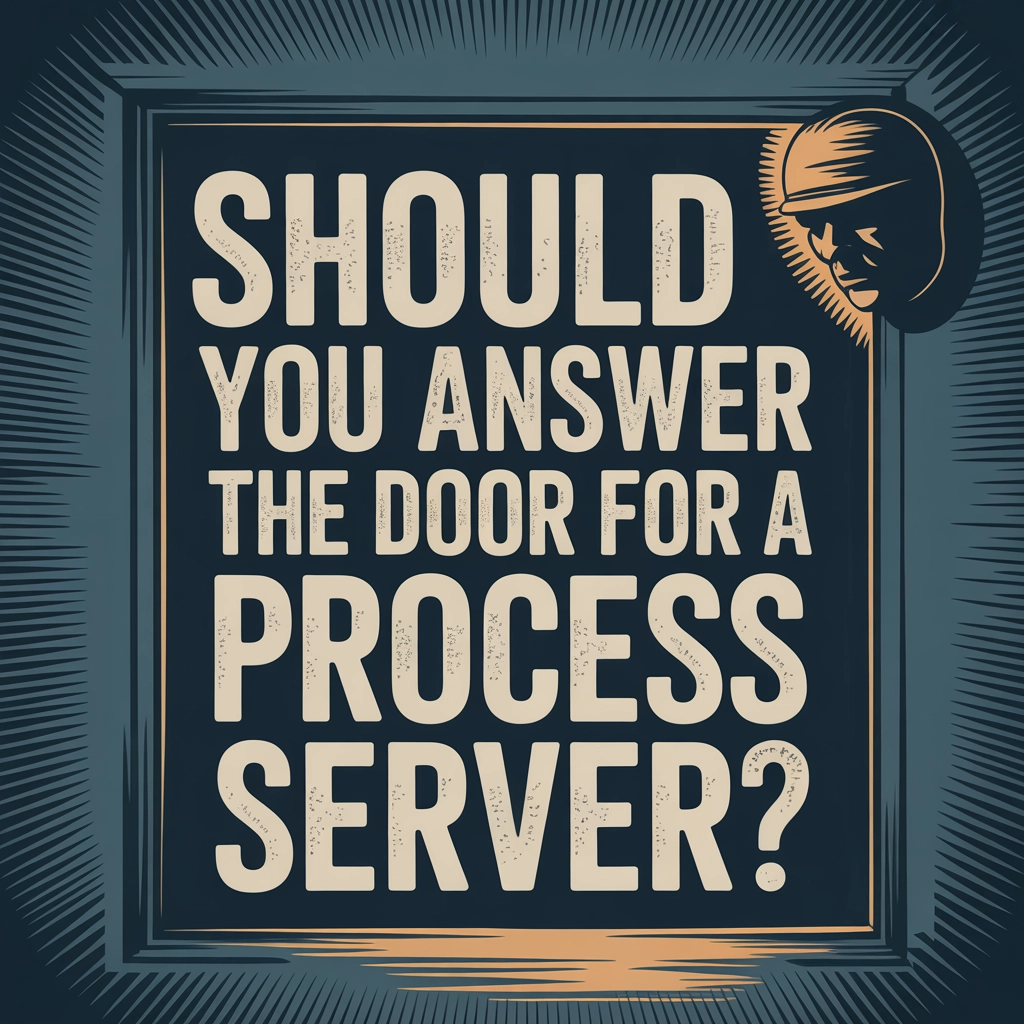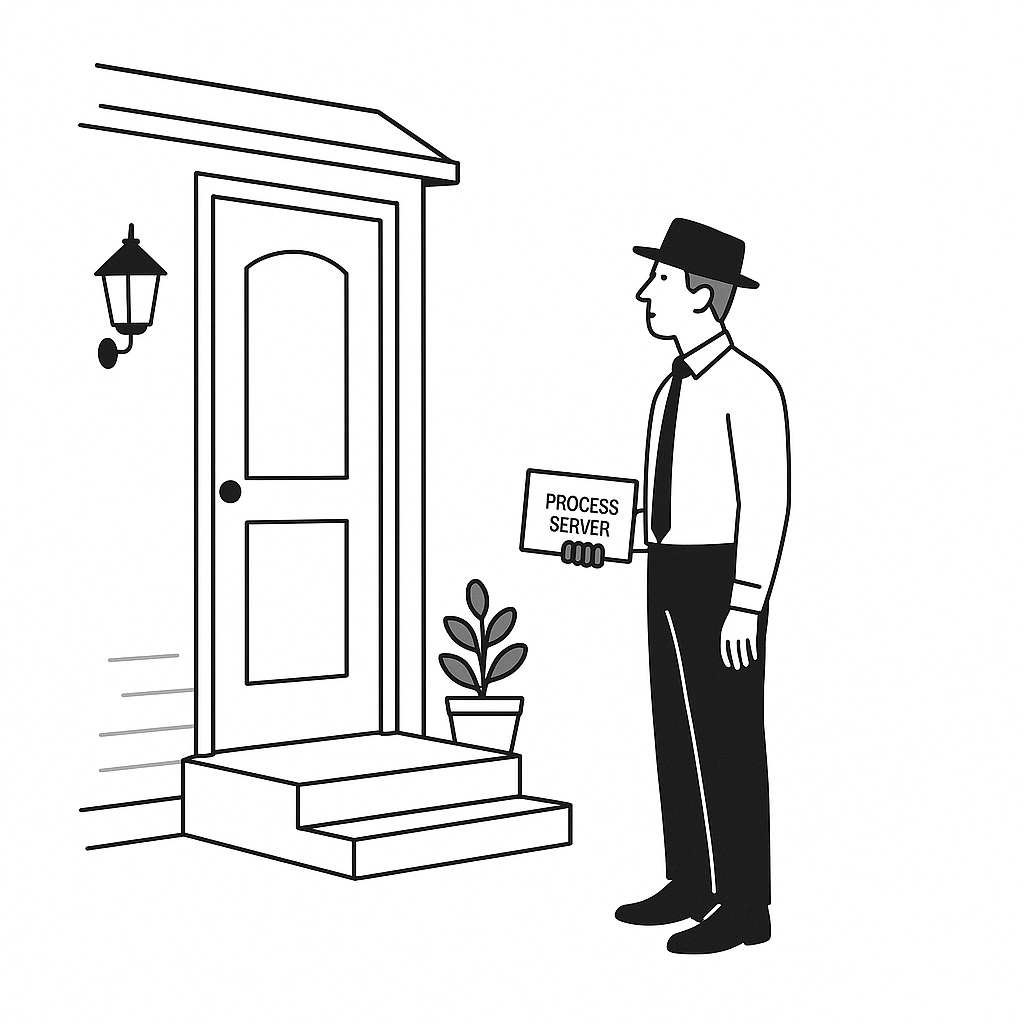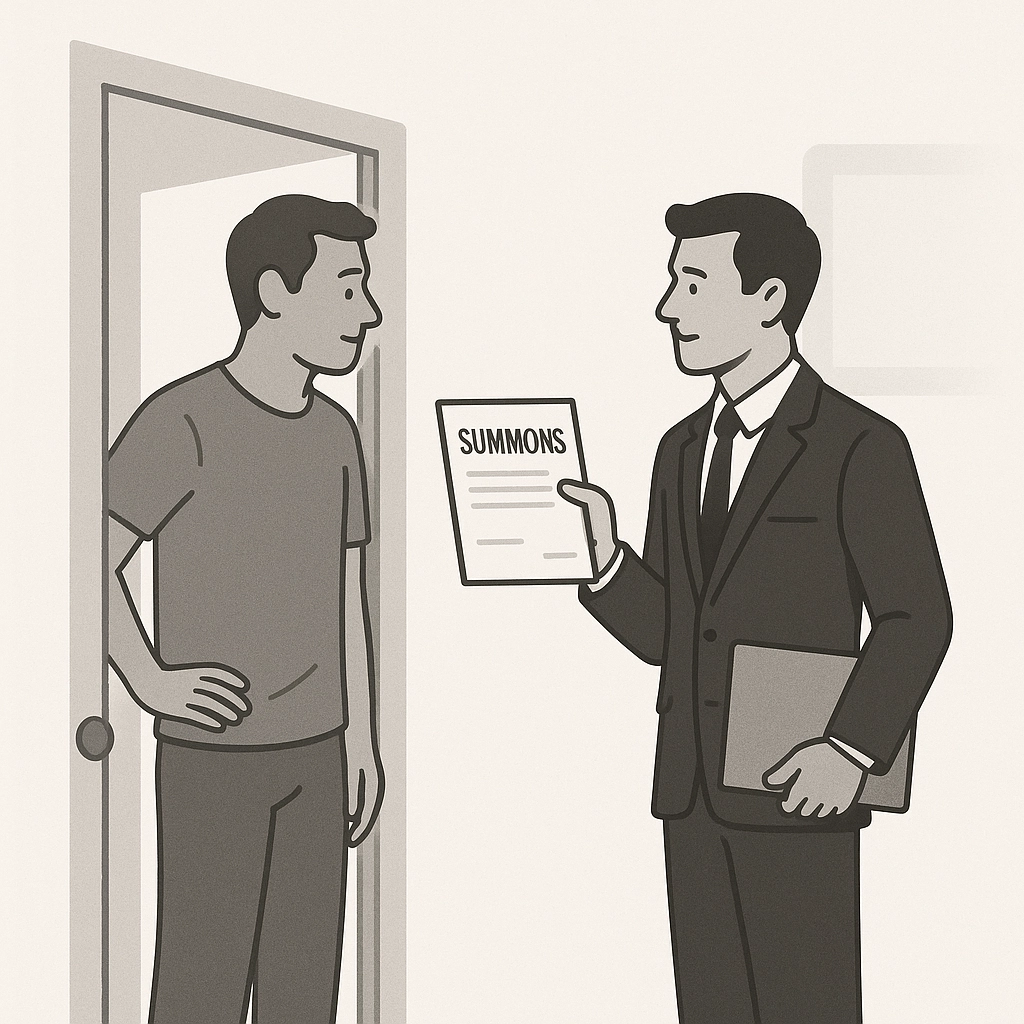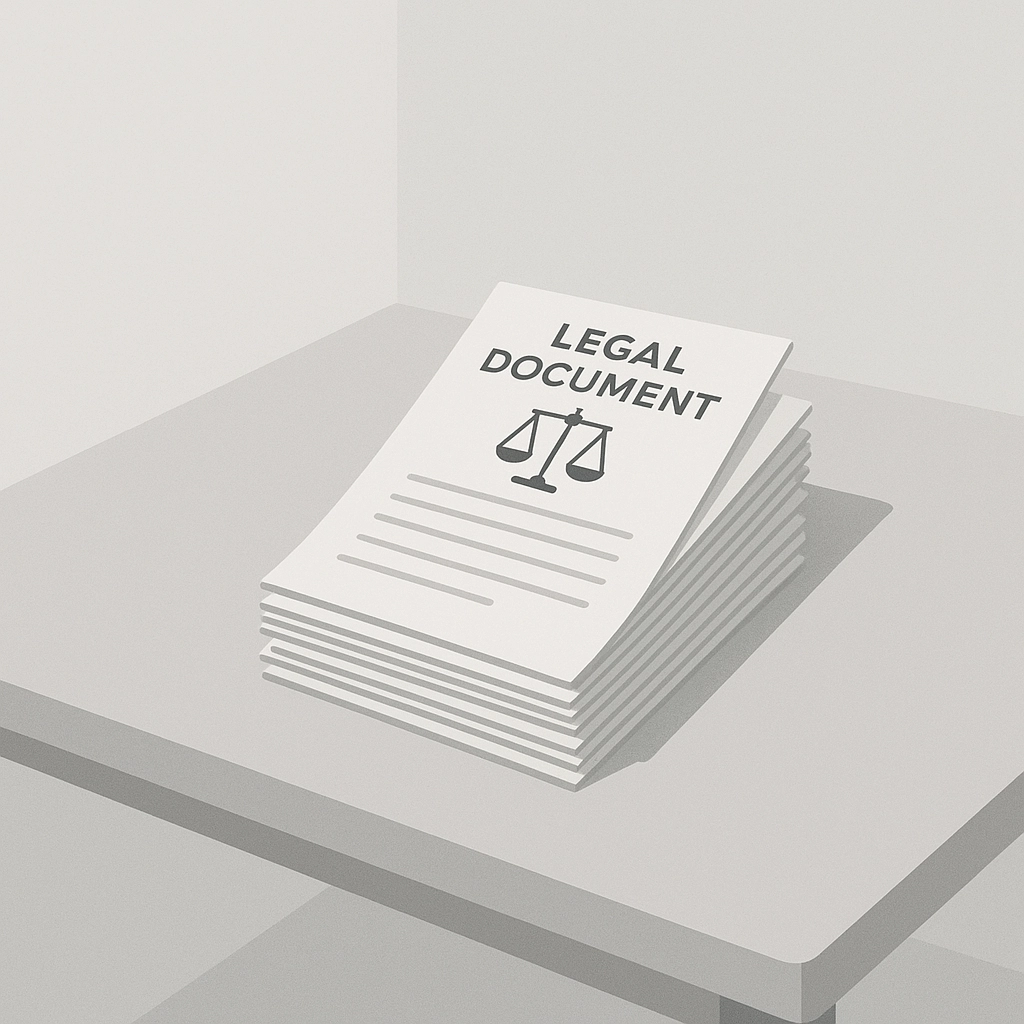
If a process server is knocking at your door, you might feel a little anxious, unsure, or even tempted to ignore them. We get it—nobody likes surprises, especially involving legal documents. But before you decide to duck behind the curtains or pretend nobody's home, let's talk about what really happens if you answer (or don’t answer) the door to a process server, why it matters, and what your rights are in the process.
What Is a Process Server, Anyway?
A process server is someone whose job is to deliver (or “serve”) court documents to individuals involved in legal cases. These papers might be a summons, a complaint, a subpoena, or a notice of a lawsuit—essential info that kicks off the legal process. Process servers aren't law enforcement; they're neutral third parties there to make sure you get legal notice in a fair and documented way.
Do You Legally Have to Answer the Door?
Here’s the straight-up truth: You are not legally obligated to open your door for a process server. If you choose to ignore the doorbell or don’t answer, you won’t be arrested or face any immediate criminal penalties for your decision. The process server also cannot force their way in, break and enter, or violate trespassing laws. Their job is to deliver, not to intimidate or cross legal boundaries.
But just because you don’t have to answer doesn’t mean it’s wise to dodge service. The legal process will still march forward, and avoiding the server almost always makes things more complicated for you.
What Happens If You Ignore a Process Server?
Here’s where many people misunderstand how the law works. Refusing to answer the door doesn’t make the lawsuit go away. Instead, it triggers a series of steps that can make your situation a whole lot worse.
The Process Server Will Keep Trying
When you don’t answer, a dedicated process server will typically return at different times of the day and week, hoping to catch you at home. If you’re intentionally unavailable, this can feel like a little game of cat and mouse. But process servers are patient, persistent, and have seen every avoidance tactic in the book.

Alternative Delivery Methods Kick In
If repeated attempts to serve you in person don’t succeed, the law in many states allows for alternate service methods. This might include:
- Leaving the documents with another adult at your home
- Taping the papers to your door
- Mailing you the documents
- Serving you at your workplace
If these alternatives are approved by the court after good faith attempts at personal service, you are considered "served," even if you never made face-to-face contact. So, ignoring the process server ultimately achieves nothing—except possibly missing critical legal deadlines.
Consequences of Not Being Served Personally
Skipping that knock or ring could result in:
- Default Judgments: If you never receive your papers and don’t respond or appear in court, a judge can rule against you without your side of the story.
- Additional Court Orders: The plaintiff might ask the court for orders to seize property, garnish your wages, or enforce the judgment in other ways—without your participation.
- Potential Costs: Some jurisdictions will make you pay for the extra time and effort it takes for the plaintiff to get you served.
Why Facing the Music Is Usually Best
It’s tempting to try to delay or avoid bad news. But, in legal matters, facing the situation head-on early on gives you more control, more options, and a better chance at a positive outcome.
Here’s why you should open the door and accept the papers:
- You start the clock on responding. The legal process officially begins when you’re served. This gives you a clear timeline to hire an attorney, file an answer, or take other necessary actions.
- You avoid late fees, penalties, or escalated legal costs. The sooner you’re in the loop, the less likely you are to be hit with additional financial headaches.
- You prevent “default” judgments. By being aware and participating, you protect your assets, reputation, and legal standing.
A process server’s job is not to scare or punish you—it’s to provide legal notice, so the process is fair for everyone. Remember: Accepting service is NOT admitting guilt or agreeing to anything in the paperwork. It simply means you're officially notified about a court matter.

What If You Feel Unsafe or the Server Acts Inappropriately?
Most process servers are professional and courteous, but if you ever feel threatened or believe someone is impersonating a public official, here’s what to do:
- Do not open your door if you’re genuinely concerned for your safety. Instead, verify their credentials through the door or a peephole. Ask them to leave contact info or business cards.
- Call local law enforcement if the person attempts to force entry, threatens you, or refuses to leave your property.
- Contact Faithful Path Investigations if you see one of our process servers at your door and want to verify their legitimacy. We take professionalism seriously and respect each person we serve.
Common Myths (and the Real Truth!)
Let’s clear up a few things people get wrong:
- Myth: If I never get served, the lawsuit can’t move forward.
- Fact: Plaintiffs have plenty of tools to achieve legal service even if you play hard to get. Courts can allow publication in newspapers, alternative delivery methods, or even mail service.
- Myth: Process servers are out to get me.
- Fact: They’re just following standard procedures—think of them as the mail carriers of the legal system.
- Myth: Accepting papers means I agree with the lawsuit.
- Fact: Not at all. Accepting is just receipt of notice—not confession!

Steps to Take After You’re Served
So, you answered the door and now have a stack of legal documents in your hand. Now what?
- Don’t panic. Take a breath and read through the paperwork. Look for important dates.
- Contact an attorney. Get legal help ASAP, especially if you don’t fully understand the documents.
- Respond on time. Courts have strict deadlines for filing an answer or response.
- Keep copies. Store your paperwork safely—you’ll need it during the legal process.
- Reach out for help. If you’re unsure what to do next, contact a lawyer of your choice. We are not lawyers and cannot give legal advice.
When in Doubt, Get Guidance
Ignoring a process server is rarely the right approach. Facing up to the situation—no matter how uncomfortable—puts you in control. You’ll have your day in court, the opportunity to tell your side, and the chance to resolve the matter fairly.
If you’re dealing with a process server or need more guidance on how to handle legal notices, don’t hesitate to get in touch with legal assistance. We serve the Cass County area with professionalism, discretion, and respect for your rights.
If one of our process servers is trying to contact you, the best step is to reach out directly to Faithful Path Investigations so we can work together to make the process professional, quick, and as stress-free as possible. We’re always happy to answer your questions and help make sure you feel prepared and respected, every step of the way. Again, we are not lawyers and will not give legal advice, please contact your own legal aid.
Final Thoughts
Legal papers aren’t fun—but facing them is far better in the long run. Answering the door for a process server doesn’t hurt your case—it puts you in a better position to defend yourself and find a fair resolution. If you have questions, or you’re unsure what to do next, contact your own legal support system.
Stay proactive, stay informed, and remember—knowledge is your best friend when the law comes knocking.
Looking for more insider tips about process serving and legal investigations? Check out our recent blog posts, including secrets behind fast and reliable process serving, legal support, and more.


